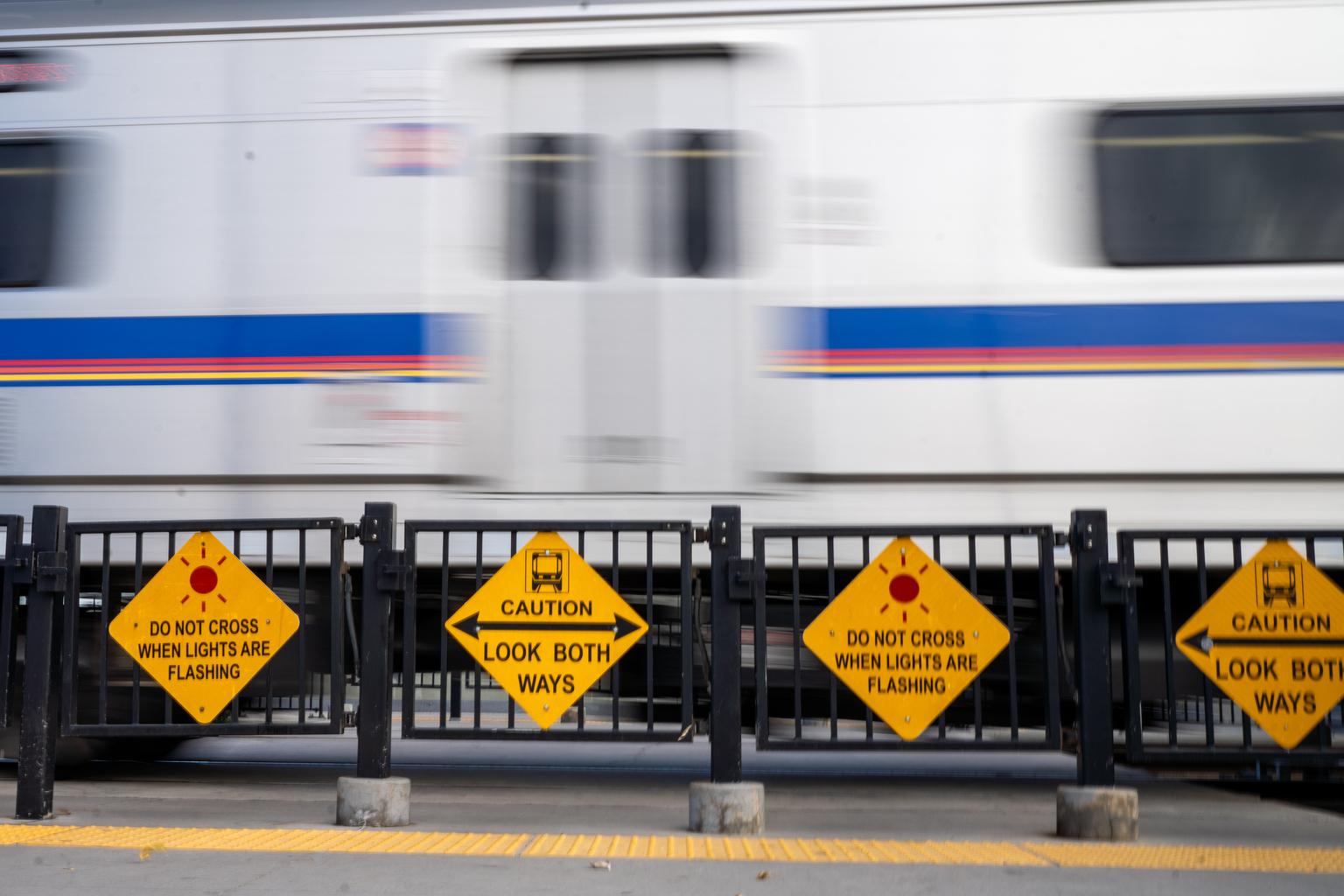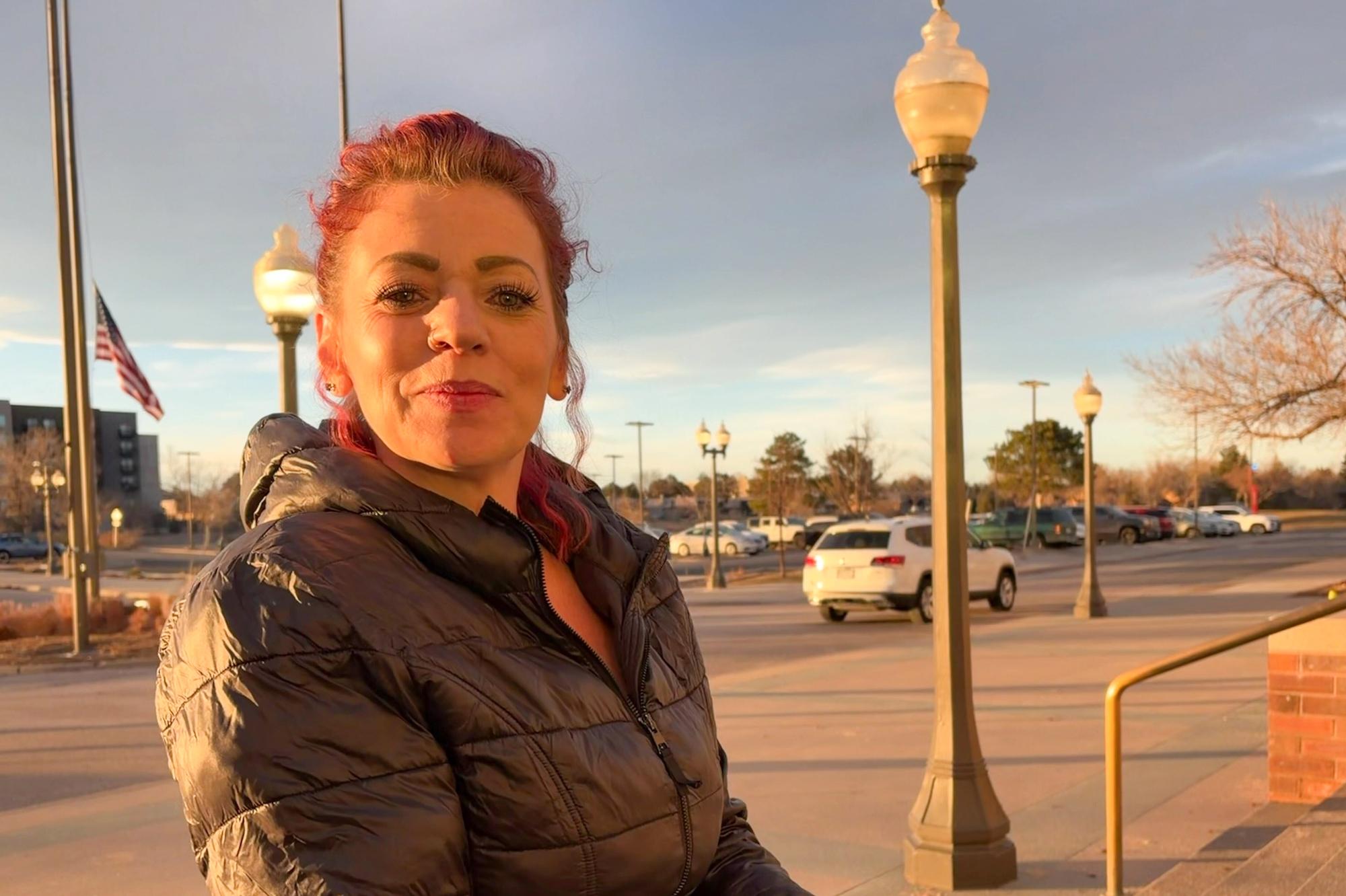
Earlier this week, Patrick O’Keefe, newly elected to the Regional Transportation District’s board of directors, rode a very slow D Line light rail train to an election night party in downtown Denver.
The “slow zones” came as a shock to riders and operators in June when RTD imposed a more rigorous track standard on itself, leading to months of repairs and delays. Agency executives deserve praise for prioritizing maintenance, O’Keefe said, but he thinks they could’ve done a better job communicating the problems with the public.
“I wish we had more transparency on the solution and the timing around implementing the solution,” O’Keefe said on election night.
After the initial surprise, the agency has since published regular updates about the work. But many of the seven new directors elected this week say they still want more transparency and accountability from RTD’s leadership team. Some also said they want to see more increases in bus and train service and ridership.
“I want the board to be more aggressive, more ambitious, and hold management accountable for their performance,” Matt Larsen, who will represent parts of Aurora and Denver when he and other new directors starts their term in January, told CPR News. “The fact is, I don't think … RTD management has performed in a stellar fashion over the last four years.”
In a statement, RTD General Manager and CEO Debra Johnson said that transparency is “critical” and that she is accountable for the agency’s performance. She also pointed to the strategic plan she and the board developed that focuses on maintenance, hiring, and safety.
“Increasing ridership is important, and that ridership will come as RTD continues to focus its efforts on the Strategic Priorities established in its Strategic Plan,” she said in a statement.
In an interview, outgoing board chair Erik Davidson defended the agency’s performance and the board’s oversight.
“RTD is in a good position, but it can always be in a better position,” Davidson told CPR News. “I'm excited to see what new board members will bring.”
Most of the newly elected directors-to-be co-signed a “Commitment to Riders.”
That manifesto calls for improvements to service quality, safety and reliability. Karen Benker, who will represent Longmont and nearby communities and supported the shared agenda, said in an interview with CPR News earlier this fall that RTD has, “many, many, many issues” to address.
“Management needs to take a stronger position and get those things fixed ASAP,” she said. “Having rail going 10 mph is totally unacceptable. These things need to be fixed and fixed more quickly.”
Benker has also said pushing RTD to finish its long-promised rail line to Boulder and Longmont is her top priority.
Another signee, Brett Paglieri from Edgewater, said the agency has performed “poorly” in recent years.
But rather than directly blaming RTD General Manager and CEO Debra Johnson, Paglieri faulted the existing board for not directly tying her performance expectations to ridership numbers. If ridership is going up, he said, it’s a sign that things are going well overall.
“I want to see the agency grow,” he said. “I want to unlock ridership and see the numbers return to pre-pandemic levels and beyond.”
Johnson sent letters to board members-elect this week that said RTD and its peers across the country, “continue to shift the conversation regarding the ultimate measure of transit system performance, away from ridership and toward the value provided to the communities we collectively serve.”
Multiple directors-elect shared the letter with CPR News. Some expressed surprise at the language, said one director-elect who spoke under the condition of anonymity.
“RTD is a transit agency; ridership is the primary goal,” the director-elect said.
One director-elect wants the board to take more power.
Chris Nicholson, who won his central Denver race and spearheaded the shared manifesto, said RTD’s system “certainly feels broken a lot of the time. And we deserve better.”
In a September interview, Nicholson said he would give Johnson “the first chance” to demonstrate she can make the changes he and others are pushing.
On election night, Nicholson said he also wants the board to take back some of the power it is granted under state law but that it has designated to the general manager and CEO.
“The RTD board, through the goals that it sets and the way that it decides compensation and the degree of hands-off versus hands-on, provides the general manager with power,” he said. “It is time for us to change that relationship.”
The board should hire the agency’s top lawyer, Nicholson said, and explore changing chains of command so some departments report directly to the board. He also believes that with more power, the board itself should take more responsibility for the agency’s performance as well.
RTD’s outgoing board chair acknowledged that the agency has gone through a painful stretch, but defended it, too.
Davidson said the board under his tenure has “worked diligently” to hold RTD accountable and pointed to a few recent successes. Those include a generally positive state audit of the agency’s fiscal health from July and RTD’s success in hiring bus drivers that has enabled service improvements scheduled for January.
Voters also just approved a measure that will allow RTD to avoid potential future taxpayer refunds that could have required service cuts.
Davidson, who will leave the board in January, has apologized to the public multiple times in recent months for the ongoing light rail issues. But, he said, that work will pay off by ensuring the system will be usable “today, tomorrow, and for future generations.”
“We have a number of very strong leaders in place, including Debra, that are working very, very hard and diligently to make sure that the public's investment in transit is well maintained,” he said.
Leslie Welch with Greater Denver Transit, an advocacy group that backed nearly all of the successful candidates, said they were “feeling good” about the outcome of this week’s election.
“The ultimate thing we're going to have to do as an advocacy group is hold [new board members] to their promises,” Welch said. “If they say they're going to fix RTD, then we need to start seeing concrete, tangible steps of them doing so.”
Seven of the eight races have been settled. Here’s who won:
- District A — Chris Nicholson
- District D — Chris Gutschenritter was leading Barbara McManus 55 percent to 45 percent as of Friday morning. The AP has not yet called the race.
- District E — Matt Larsen
- District F — Kathleen Chandler
- District G — Julien Bouquet (incumbent)
- District H — Patrick O’Keefe
- District I — Karen Benker
- District M — Brett Paglieri









